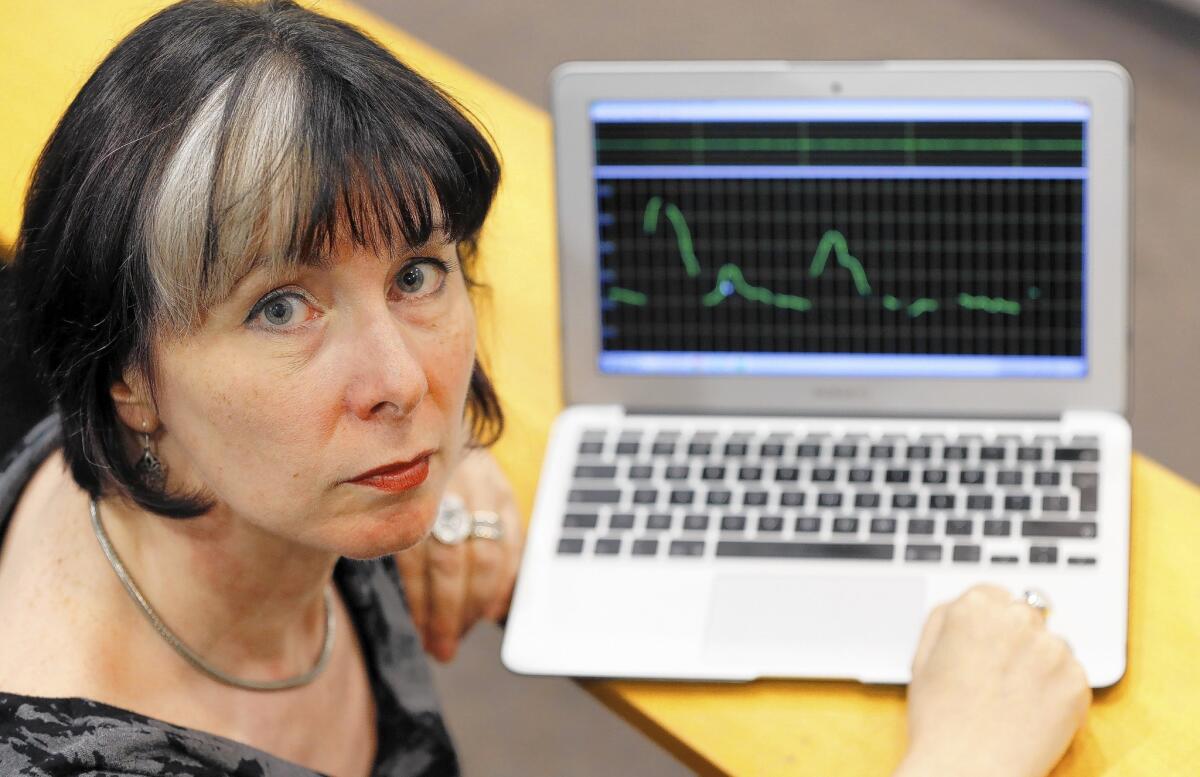Identifying James Foley’s executioner seen as possible, if difficult

- Share via
Reporting from LONDON — The black-hooded executioner who beheaded American journalist James Foley may have left more clues to his identity than he intended, experts said Thursday, beginning with his distinctly British voice, a sonic fingerprint that gives investigators a fighting chance of determining his identity.
But it will not be easy.
Scotland Yard, British intelligence and the FBI are all said to be scrambling to figure out the identity of the man who killed Foley, his crime documented in a video that was posted online Tuesday by the militant group Islamic State. The group is believed to have abducted Foley in Syria and held him for nearly two years.
The location and precise timing of the killing remains unknown, although it appeared to have been somewhere in the desert expanse of Syria or Iraq.
The executioner took pains to disguise himself, covering himself in black from head to toe, with only his hands, eyes and the bridge of his nose exposed. Those visible parts may help investigators determine some identifying features, beginning with eye and skin color. The fact that he is standing behind a kneeling Foley should enable them to determine his height and approximate weight.
But it was the voice that experts pointed to as the most identifiable feature. His accent has been pinpointed by linguistics experts as “multicultural London English,” a variety of pronunciation that originated among recent immigrants in London’s East End and spread across southeast England.
British newspapers have reported that at least one former hostage has identified the killer as one of his captors, a man simply known as “John,” — allegedly one of three militants from Britain who were referred to as “the Beatles” because of their British origin. They are believed to operate in or near the Syrian town of Raqqah, a rebel stronghold.
Martin Barry, a forensic voice expert who has advised London’s Metropolitan Police but is not working on the Foley case, said investigators probably will be trolling through records of young radicalized males in inner London who are already known to the authorities.
“It’s possible that it’s someone who has already been involved with the police, so there could be, on record, a police interview of this person speaking,” Barry said in an interview. “That could then be compared with the recording.”
However, he said, “given how labor-intensive the task is, I think it would be quite implausible to expect a positive outcome in the short term. There are too many voices out there to compare this one with. If this is a person who has never spoken into a police microphone, then I’d say effectively there is no way to be able to isolate the individual.”
Still, Richard Barrett, a former head of counter-terrorism for Britain’s Secret Intelligence Service, known as MI6, told the BBC he believes the killer “will be identified.” British officials have expressed hope that members of the public will come forward to identify the man.
A spokesman for Scotland Yard said the agency “is not prepared to hold any interviews” about the case.
British Prime Minister David Cameron resumed his summer vacation after hurrying back to London on Wednesday to lead an emergency Cabinet meeting on the killing and the British government’s response to events in Syria and Iraq. It’s believed that about 500 Britons have traveled to the region to join militant rebel groups.
Foley was abducted in Syria in November 2012. On Wednesday, the Pentagon revealed that U.S. military forces had attempted to rescue him and other captives this summer, a mission that failed to locate any hostages.
Britain has long grappled with the threat of Islamic extremism within its borders. The country is home to more than 2.7 million Muslims, accounting for 4.4% of the population. Concern has grown over first- and second-generation British Muslims who are young and vulnerable to radicalization.
In 2005, suicide bombers killed 52 people in attacks on the London Underground and bus service. Three of the four attackers were British-born. Last year, two Nigerian British converts to Islam killed a British soldier on a street in south London.
Werth is a special correspondent.
More to Read
Sign up for Essential California
The most important California stories and recommendations in your inbox every morning.
You may occasionally receive promotional content from the Los Angeles Times.













